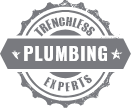Slab Leaks: What They Are, How They Are Caused, and What To Do To Fix Them
All residential homes are built on a basement, crawl space or concrete slab foundation. For those in the final category, slab leaks can be a significant problem if left unchecked. Slab leaks occur when water has leaked into a home unnoticed from pipes under the slab foundation, begins to seep into the cracks of the foundation, and causes pressure and damage to the slab. In older homes, slab leaks are often caused by drainage problems, and in newer homes, slab leaks are typically a result of plumbing leaks.
Homes that were built before the 1980s may have a greater risk of slab leaks from water leaching from the soil under the foundation. Back then, many building codes did not require any type of moisture barrier between the soil and the slab foundation. Most homes built after that time are required to have polyethylene vapor barriers installed in order to meet building codes.
What Causes A Slab Leak
Badly wrapped pipes
All water pipes, particularly those that transport hot water, expand and contract every day. When underground pipes are installed, they are typically wrapped to protect them from contact with the concrete slab foundation. Sometimes, if pipes are wrapped badly during installation, they can wear out from this contact and leak. Pipe repair may be required.
Earth shifting and settling
Over time, the earth under your concrete slab foundation can shift, similar to what would happen during an earthquake. This shifting can cause significant pressure on the water lines buried under your home and can cause the pipes to crack and leak.
Chemical Reactions
A process called electrolysis, which is a chemical decomposition, happens when pipes that are manufactured with copper react with different minerals in the soil. Pipes that carry hot water tend to corrode from the outside of the pipe to the inside; cold water pipes do the opposite and start to deteriorate inside first. This reaction, over time, can slowly eat away at your pipes causing leaks.
Weakened Water Lines
Since water lines are laid down under the concrete slab, there can be minor damage such as small nicks when the concrete is poured. Although these occurrences may not cause immediate leaks, they can weaken the pipes and grow into a leak-causing crack later.
Signs That You May Have A Slab Leak
Watch your water bills
Take a look at your water bills over time. If you notice that you are suddenly paying much more than normal without an increase in water usage, you may have a leak. Some homeowners notice a 25 percent to a 50 percent increase in their water bill in a single month.
Check your carpet and baseboards
Water leaks caused by plumbing problems or inadequate drainage after a significant rainfall can result in water seeping through the slab foundation and soaking the carpet padding or wetting baseboards. If you notice damp spots in your carpet or baseboards, you may suspect a slab leak. Also, if you notice warm spots on any part of your floor, you may have a hot water leak under your foundation.
Notice mold and mildew
Both of these are frequently caused by unwelcomed moisture to your home. Mold and mildew are not only unpleasant, but they can destroy your carpet, cause health problems, and encourage pests such as ants and termites to enter your home.
Inspect hoses and appliances
It’s a wise idea to check the hoses connected to your water softener and appliances like your humidifier and water heater. Make sure there are no leaks and that everything is in proper working condition.
Look over drains and pipes
Wherever water travels, there is a potential for a leak ans hidden problems. Take the time to examine the water pipes and drains throughout your home. Make sure the water flow and supplies make sense against your typical water usage.
Question pooling water outside your home
Examine your drainage system around your house and make sure that water has someplace to flow away from your foundation during heavy rain storms. Standing water near your foundation is never a good sign.
Steps To Take If You Suspect Slab Leaks
Repair pipes and appliances
To prevent further damage, take the time or invest the money in repairing any leaks or problems you discover with your home’s pipes or appliances to halt any additional water seepage.
Order modern testing
With the advances in modern technology, there is no need to destroy sections of a slab foundation in order to find water leaks. Homeowners have many modern non-invasive testing options such as hydrostatic testing, electronic amplification and electromagnetic pipeline locators. Hydrostatic testing involves using a dye and changing the pressure within the pipes to detect leaks while amplification testing involves listening for the sounds within a pipe that can direct professionals to a leak.
Consider epoxy restoration
Once the leaks are identified, you will want to hire a licensed expert to help remedy the problem properly. An experienced professional contractor can use a process called epoxy restoration, which involves drilling small holes to reach the leak and conduct pipe repair.
Install new piping
If you discover multiple leaks, it may make more sense to put in brand new pipes that re-route your water completely. Advanced developments have resulted in modern piping and fitting materials that are more durable and secure than systems of the past.
Although slab leaks can lead to major damage over time, modern technology gives homeowners the tools and solutions they need to fix problems before they become a major issue. Be sure to contact an experienced professional for assistance.





